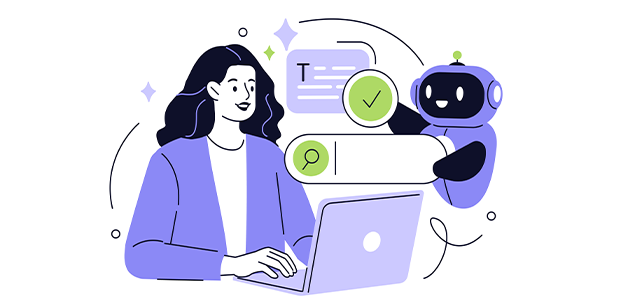
The end of search as we know it: why AI is rewriting the rules of customer discovery
When I started my career at Google two decades ago, we were obsessed with one thing: helping people find what they were looking for faster. Google's latest AI announcements signal something far more profound. Tech leaders are not just changing how people search, they’re fundamentally transforming how they discover and buy.
The seismic shift happening right now isn't just technological; it's behavioural. We're moving from a world where customers search for "waterproof hiking boots size 9" to one where they tell an AI agent "I need a cute travel bag for Portland in May." This represents the biggest change in customer discovery since the advent of search engines themselves.
The keyword-driven world we've known is ending. The new paradigm is intent-based conversation with AI intermediaries that interpret context, consider weather patterns, evaluate use cases, and surface products that solve real problems, not just match search terms.
This shift means traditional SEO tactics focused on exact-match keywords, category-specific landing pages and feature-heavy product descriptions become increasingly less effective. Instead, success belongs to brands that can clearly articulate what problems they solve and in what contexts they're most valuable.
At Pharmacy2U, where I was founding CMO, we learned this lesson early. We didn't win by optimising for "online pharmacy" searches. We succeeded by understanding that our customers weren't looking for an online pharmacy at all. They were seeking a solution to the frustration of waiting in GP surgeries for repeat prescriptions. The search term was irrelevant; the context was everything.
Google's democratisation of high-quality content creation through tools like Sora and Flow creates both opportunity and challenge. I've watched countless start-ups struggle with video production costs, unable to compete with larger brands' glossy campaigns. That barrier is disappearing rapidly. Small teams can now produce professional content, levelling the playing field dramatically.
But here's the catch: if everyone can produce cinema-quality content, production capability is no longer your differentiator. What matters now is creative strategy and brand positioning. The playing field isn't just level, it's crowded.
This extends beyond content creation. Google's virtual try-on capabilities and seamless purchase flows within AI interfaces create a new type of friction point. If your product experience isn't immediately compelling within these AI interfaces, customers can instantly pivot to competitors without ever visiting your website. The traditional funnel of awareness, consideration and purchase collapses into seconds.
The most fundamental shift isn't technological; it's strategic. We're entering an era of agent-mediated commerce where AI systems make purchase recommendations based on clearly defined criteria. This means brands must optimise not just for human perception but for algorithmic understanding.
The shift to AI-mediated discovery affects every function of your business. Your product team needs to ensure the experience is compelling within AI interfaces. Your operations team must deliver on promises made by AI agents. Your customer success team needs to understand how AI shapes customer expectations
In my work with founders across a wide range of sectors, I see the same challenge: brilliant products that struggle to articulate their unique value proposition clearly enough for AI to analyse and match to customer intents. Products that can't be easily categorised or differentiated by AI risk becoming invisible in this new discovery landscape.
Smart founders are already adapting. First, they're rethinking content strategy entirely. Instead of feature lists and technical specifications, they're answering "What problem does this solve and for whom?". If your content reads like a feature list, you're optimising for yesterday's discovery model.
Second, they're embracing visual-first storytelling. With democratised video creation tools, the differentiator becomes your ability to tell a compelling story about your unique value. The question isn't whether you can make good content, it's whether your story resonates above the noise.
Third, they're preparing for agent-mediated commerce by developing crystal-clear value propositions that AI can easily process and match to customer intents. This isn't about gaming algorithms; it's about clarity of communication in an increasingly complex digital landscape.
In a world where AI interprets human intent, empathy becomes your ultimate competitive advantage. The brands that win will be those that truly understand their customers' contexts, challenges, and desired outcomes.
To be a good marketer, and by extension, to build a successful brand in this new era, you must have empathy. If you don't understand your audience deeply enough to articulate their needs in ways that resonate with both humans and AI, you can't engage effectively with either.
The fundamental question every founder must answer isn't how to optimise for Google's algorithm, it's how customers will discover your product when they're not searching by category name. Success will belong to companies that can clearly articulate their unique value in context, creating AI-native brands that thrive in this new discovery landscape.
The search revolution is here. The question isn't whether you'll adapt, but how quickly you can transform your approach to match how customers will discover and buy tomorrow.
For more startup news, check out the other articles on the website, and subscribe to the magazine for free. Listen to The Cereal Entrepreneur podcast for more interviews with entrepreneurs and big-hitters in the startup ecosystem.

